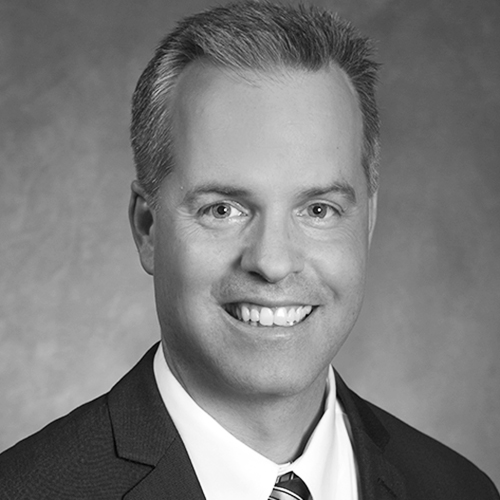This past year was one of the most difficult in Cindi Summers’s career. The senior vice president of human resources for Casey’s General Stores was part of a team responsible for finding a new HR information system. The project would impact Casey’s thirty-six thousand employees and its two thousand gas station/convenience stores scattered across fifteen states.
From its headquarters in Ankeny, Iowa, Casey’s was using a patchwork of independent, disconnected computer software systems in its human resources and payroll departments. Computer programmers were in charge of interfacing systems and producing spreadsheets and data reports. Because of this antiquated system, Summers says that reports and vital data were not current or they would arrive just before a department deadline. Casey’s method of hiring employees was equally outdated. They mostly used a paper application system until September 2016.
“An applicant typically visited one of our stores to fill out an application the old-fashioned way,” Summers says. “We knew we needed a system more robust that would handle our growth.”
Summers was part of a task force assigned to purchase a new system that would be a one-stop shop for employees and managers seeking to access both personal and company-wide data.
“It was a very stressful and daunting project,” she says. “It took us a year to find a new system that would fit our needs. It involved countless hours from the HR, payroll, and IT departments.” However, Summers notes that those long, stressful days and nights a year ago have paid off.
The Family Tree
As for her activities outside the office, Cindi Summers is a genealogy buff. Her bookshelves are full of thick books and binders related to the topic. Her father’s side of the family has deep roots planted in the central Missouri area.
“Every so often, my husband and I like to take our kids down to the Sedalia and Bevier, Missouri, area, and we go traipsing through old cemeteries,” she says. “I want my kids to know and carry on our family story.”
“Now all of our employees have their own dashboard where they can see their schedules, pay stubs, and company announcements,” she says. “Managers can now get real-time data on their employees’ hours during the week. They can adjust to avoid unnecessary expenses, such as incurring overtime or being overstaffed in their stores.”
Although such data did exist before the new HR system was rolled out in the fall of 2016, accessing and making use of that information had been a complex, time-consuming chore. “Now, managers can spend that time on other critical business in their stores,” she says.
In addition to paving the way for Casey’s future by implementing new HR systems, Summers is also championing Casey’s legacy.
Casey’s was founded in 1958 in Des Moines, Iowa, by Don Lamberti, who ran a small convenience store. A friend of his, Kurvin C. “K.C.” Fish, a gasoline salesman, encouraged Lamberti to purchase a gas station in nearby Boone, Iowa. Lamberti followed his friend’s advice, and the concept of a filling station with a general store was born. The store was named Casey’s after the initials of his good friend. The organization’s close-knit spirit has continued ever since.
“I grew up on Casey’s,” Summers says. Her grandmother worked at the Casey’s in Marshalltown, Iowa, and Summers can remember stopping by the store after school to get her cheese-bread and doughnut fix. It’s no surprise then that one of the company’s slogans—“A convenience store and a whole lot more”—hits particularly close to home for Summers.
Moreover, Casey’s operates 57 percent of its stores in towns with populations of fewer than 5,000 people. “We have a lot of family values here,” Summers says. “Don Lamberti’s son sits on our board of directors, and his grandkids came to our daycare. For a publicly held company, I’ve never seen family ideals so woven throughout the entire organization.”
Summers also says that for many of Casey’s employees, this is more than just a convenience store job. The company, she says, has a career path for those who work hard and are good at relating to customers. “We just have a lot of people here who care, and that’s really what keeps me going,” Summers says.
Although she loves the work, Summers didn’t set out to become a career HR manager. In fact, when she took a career and personality survey in high school, it showed her as being best suited to operating a cement mixer or to becoming a paralegal. In college, she did obtain a paralegal degree and then took an entry-level job with an insurance company that paid death and disability claims.
“I was captivated by the stories that I heard in that job, and I felt that I wanted to help everyone there,” Summers says. “I was good at what I did and was invited to be a part of HR projects. Human resources quickly seemed really rewarding to me.”
In HR, Summer has found her place. She has gone beyond the department’s typical duties and discovered the true value in HR. “Done right, human resources goes beyond simply managing staffing needs and administering payroll,” she says. “It’s about building relationships and being there for your employees and managers when they need you.”
Her struggles these days involve keeping up with the myriad of ever-changing compliance and workforce regulations. These include changes in federal, state, and even local laws and rules. However, the benefits of working for a big company with small-town values more than compensates for the complex work of staying on top of workforce compliance issues.
Summers’s workload this year is lighter with the new HR system up and running. She isn’t resting on her laurels, though; she and her team still have a few more modules to launch. Then, there is the ongoing job of making sure that all systems run smoothly and that they help keep the Casey’s family united and productive.

